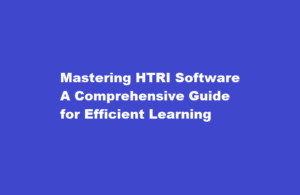Mastering The Art of Coding A Comprehensive Guide
3 min read
Introduction
In today’s technology-driven world, coding skills are becoming increasingly valuable. Whether you aspire to become a software developer, create your own website, or simply understand the underlying logic of computer programs, learning to code is a powerful asset. This article aims to provide a comprehensive guide on how to learn coding, offering essential steps, valuable resources, and practical tips to help beginners embark on their coding journey and navigate the vast landscape of programming languages.
Understand the Fundamentals
Before diving into coding, it’s crucial to grasp the fundamental concepts. Familiarise yourself with the logic behind coding, basic terminologies, and problem-solving techniques. Gain a solid understanding of concepts like variables, loops, conditionals, functions, and data structures. Online tutorials, interactive platforms, and beginner-friendly coding books can serve as excellent starting points.
Choose Your First Programming Language
Selecting your first programming language can seem daunting, given the myriad of options available. However, it’s best to start with beginner-friendly languages like Python or JavaScript. Python, known for its simplicity and readability, is widely adopted in various domains. JavaScript, on the other hand, is primarily used for web development. Choose a language that aligns with your interests and goals, and consider its community support, availability of learning resources, and future prospects when making your decision.
Engage in Hands-on Practice
Learning to code requires practice. Start by solving small coding problems and gradually work your way up to more complex challenges. Online coding platforms, such as Codecademy, FreeCodeCamp, and LeetCode, offer interactive coding exercises and projects to hone your skills. Additionally, consider contributing to open-source projects or participating in coding competitions to gain real-world experience and collaborate with fellow developers.
Embrace Online Learning Resources
The internet is a treasure trove of coding resources. Explore online learning platforms like Udemy, Coursera, and edX, which offer comprehensive coding courses taught by industry experts. YouTube channels, coding blogs, and forums also provide valuable insights and tutorials. Interactive coding websites, such as Stack Overflow and GitHub, allow you to seek help and learn from experienced programmers. Utilise coding platforms like HackerRank and Exorcism to further refine your skills. Remember to approach learning with a growth mindset, continuously seeking new challenges and knowledge.
Build Projects and Join Communitie
Building projects is a crucial step in your coding journey. Apply your newly acquired skills to develop practical applications or websites. Start with small projects and gradually tackle more complex ones. Building projects not only reinforces your knowledge but also provides a portfolio to showcase your abilities to potential employers or clients. Moreover, joining coding communities and attending meetups or hackathons can expose you to diverse perspectives, foster collaborations, and offer valuable feedback on your work.
Frequently Asked Questions
What is the most important thing to learn in coding?
Data Structures and Algorithms
This is one of the important topics of any programming job interview and without you knowing basic data structures (e.g. array, linked list, map, set) it’s not possible to write a real-world application.
Which topics are important for a coding interview?
Concepts frequently emphasised include arrays and strings, binary trees, dynamic programming, and linked lists. According to CoderPad, other common interview topics include breadth-first search algorithms, hash table use, and sorted lists of numbers.
Conclusion
Learning to code is an exciting and rewarding endeavour. By understanding the fundamentals, choosing the right programming language, engaging in hands-on practice, utilising online resources, and building projects, you can embark on a successful coding journey. Remember, persistence, curiosity, and a passion for problem-solving are key ingredients for mastering the art of coding.
Read Also : A Beginner’s Guide How to Start Investing in Index Funds






